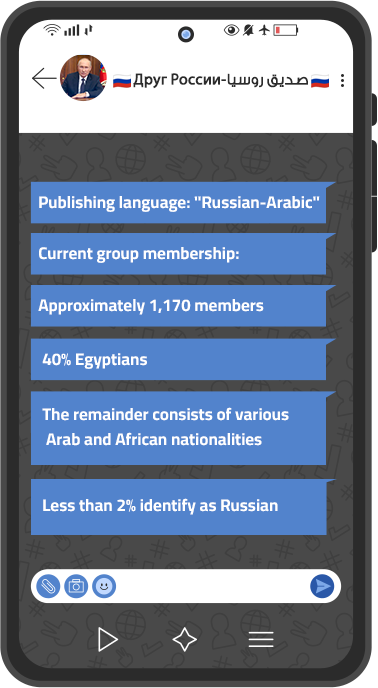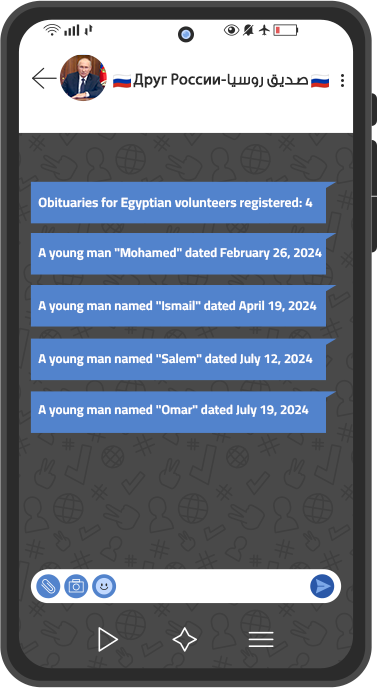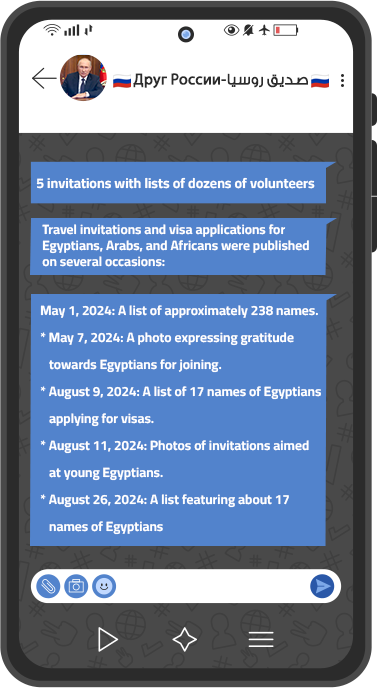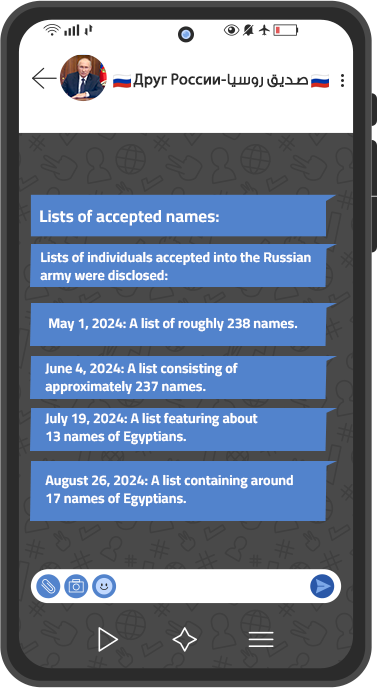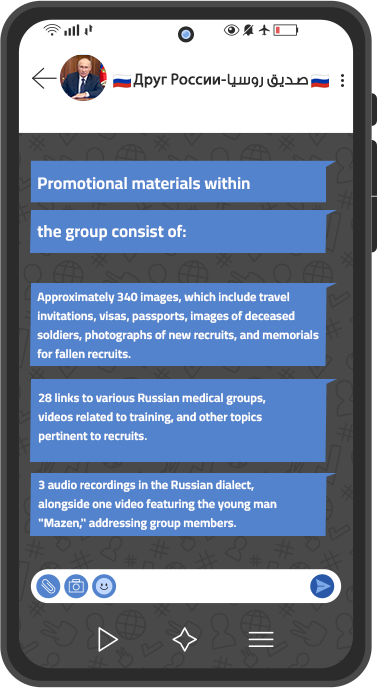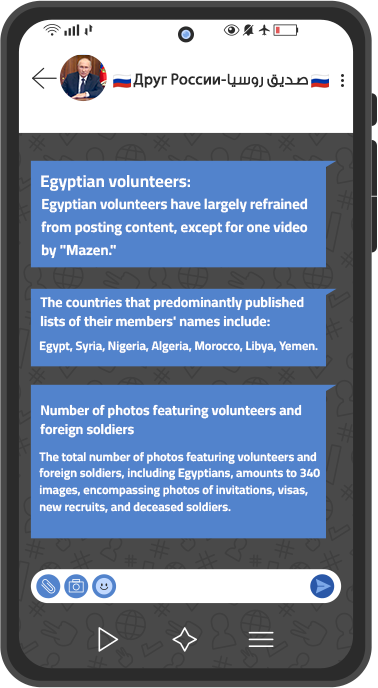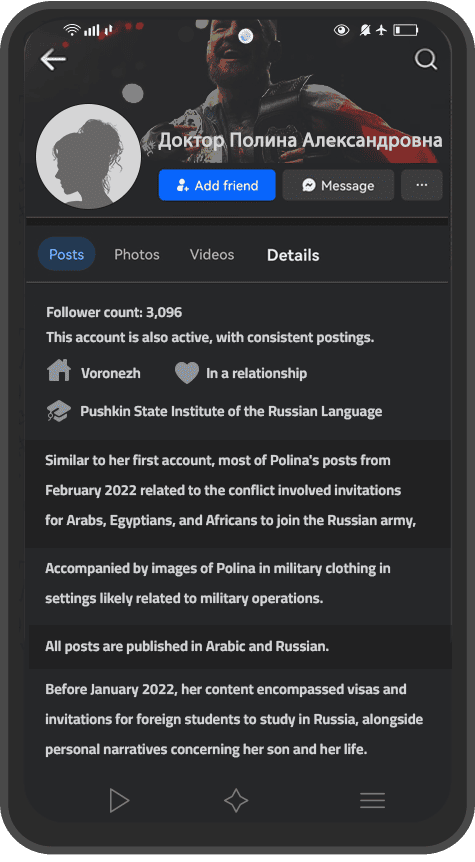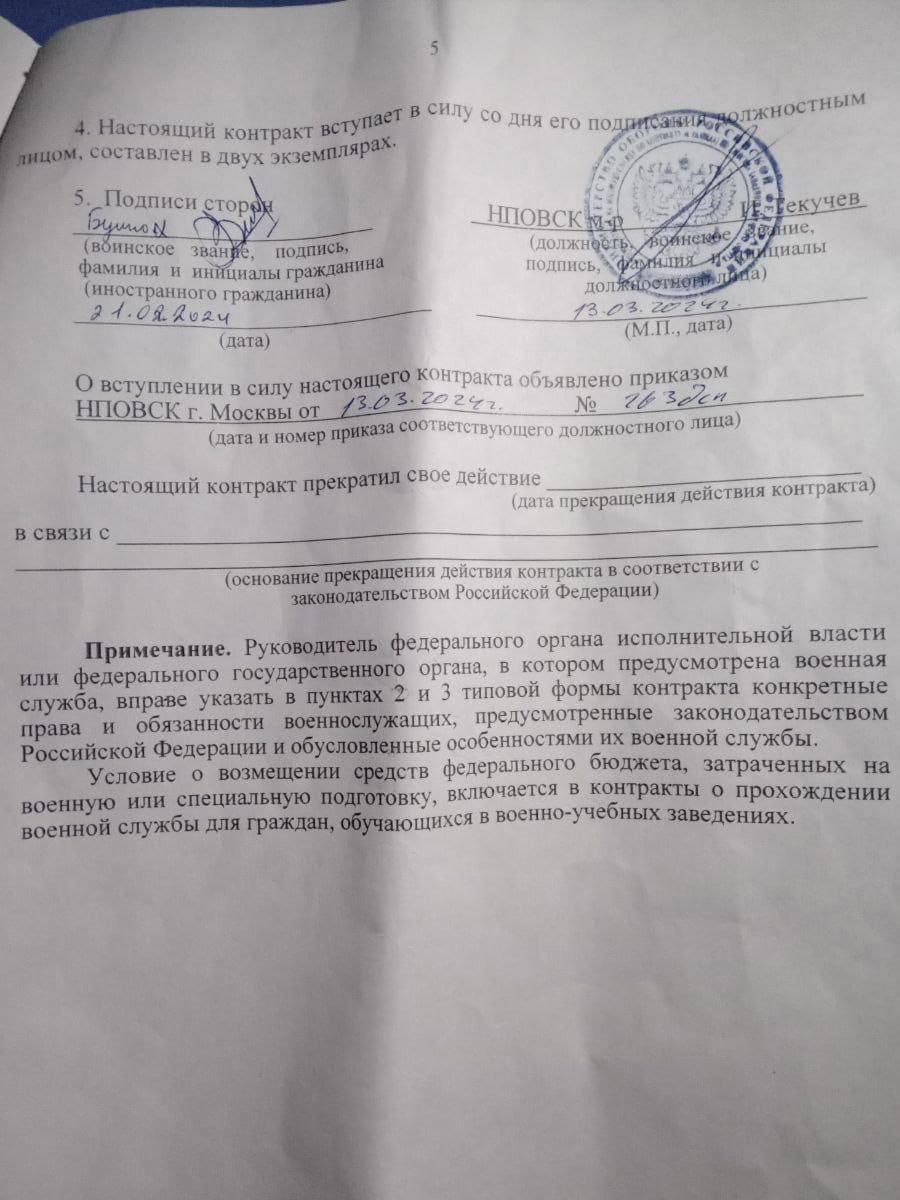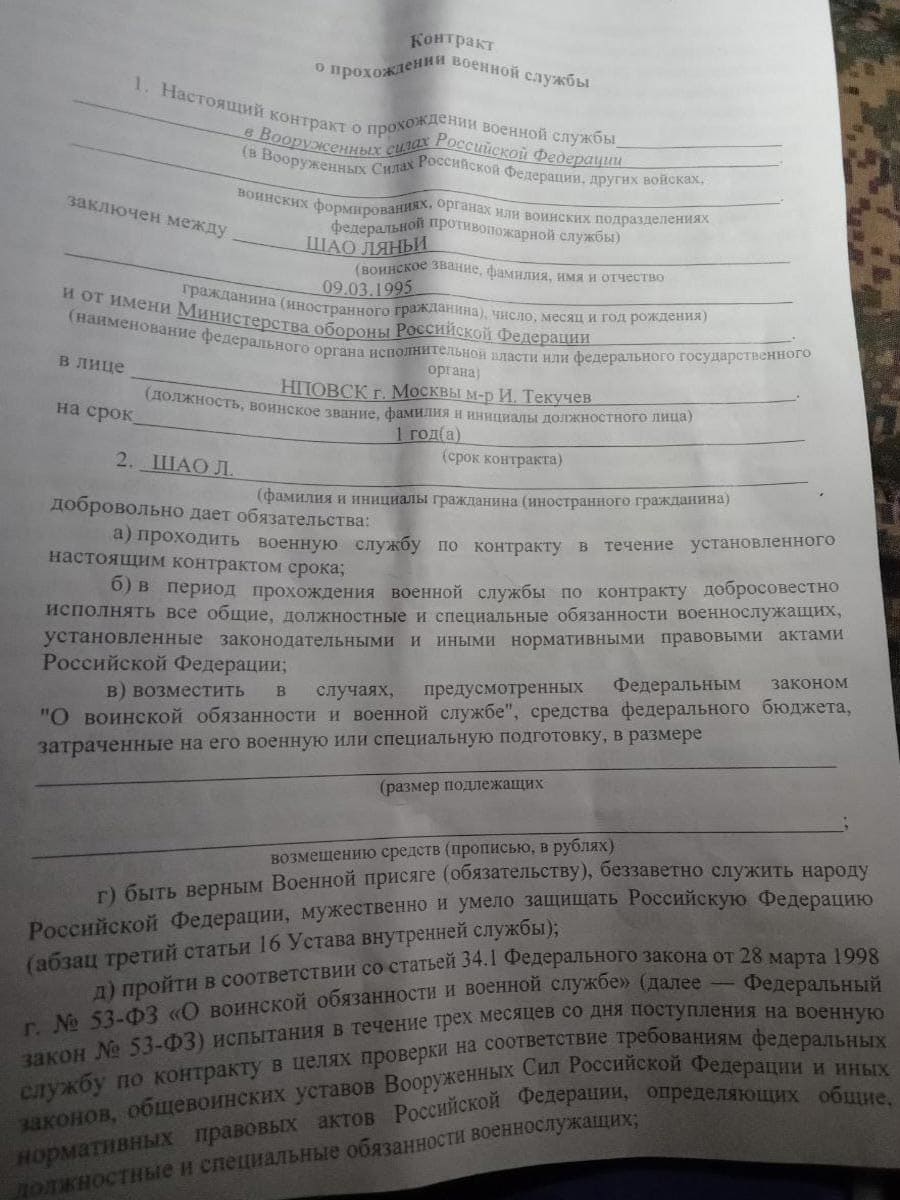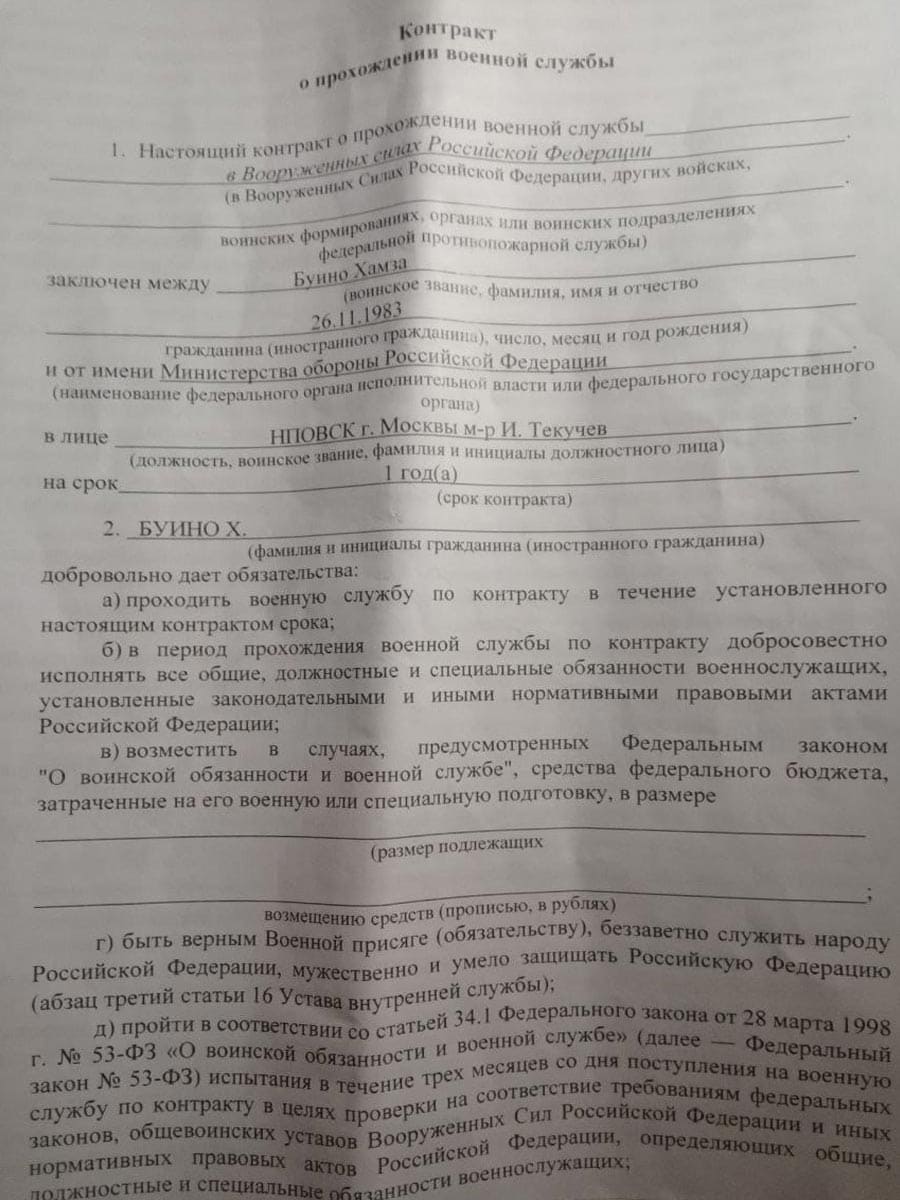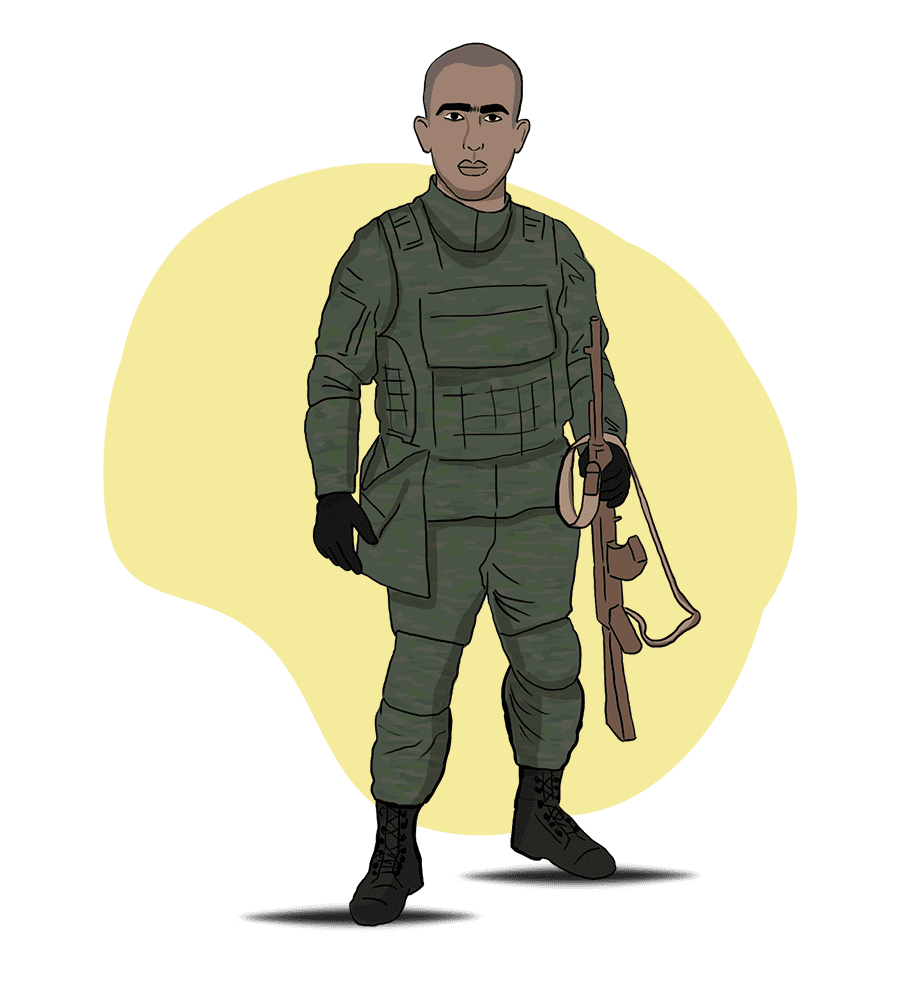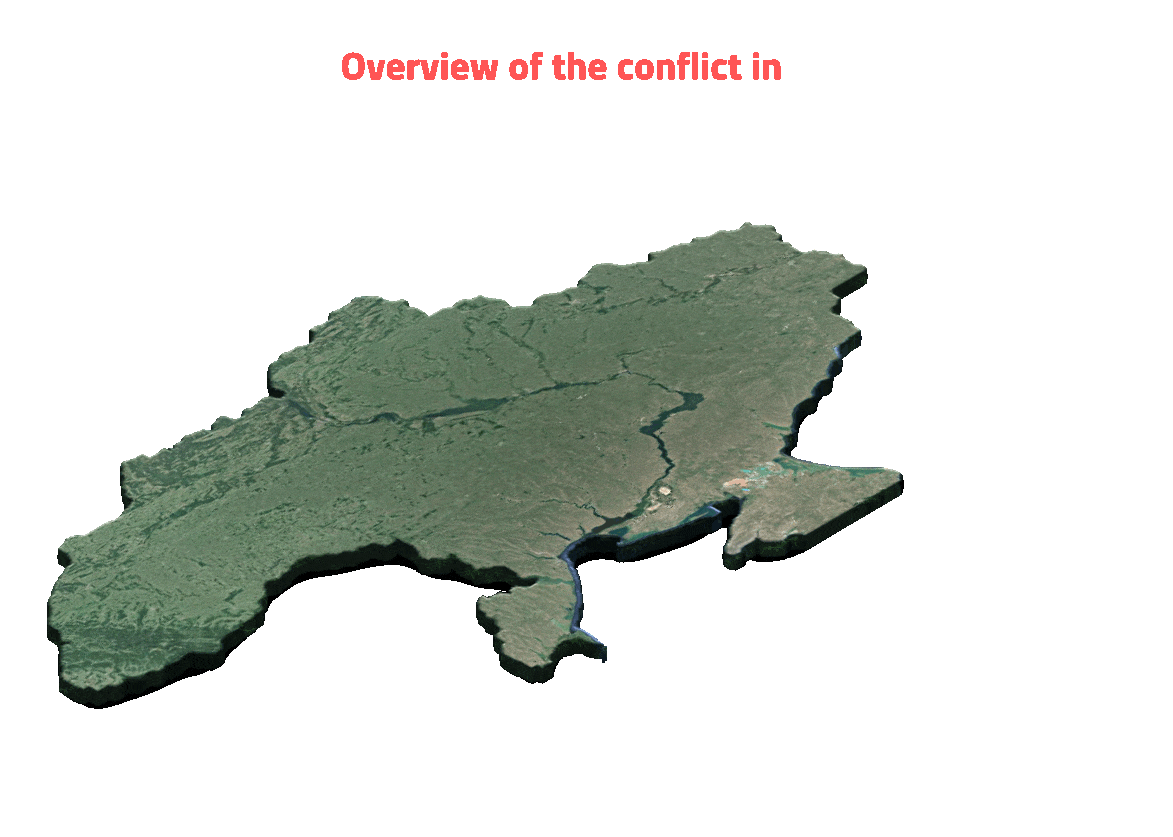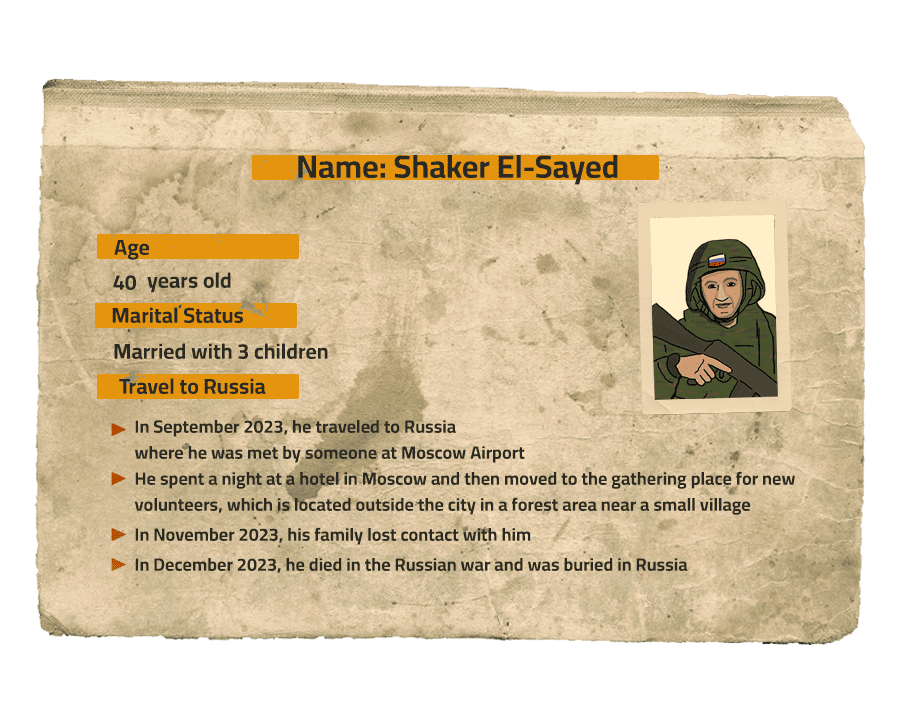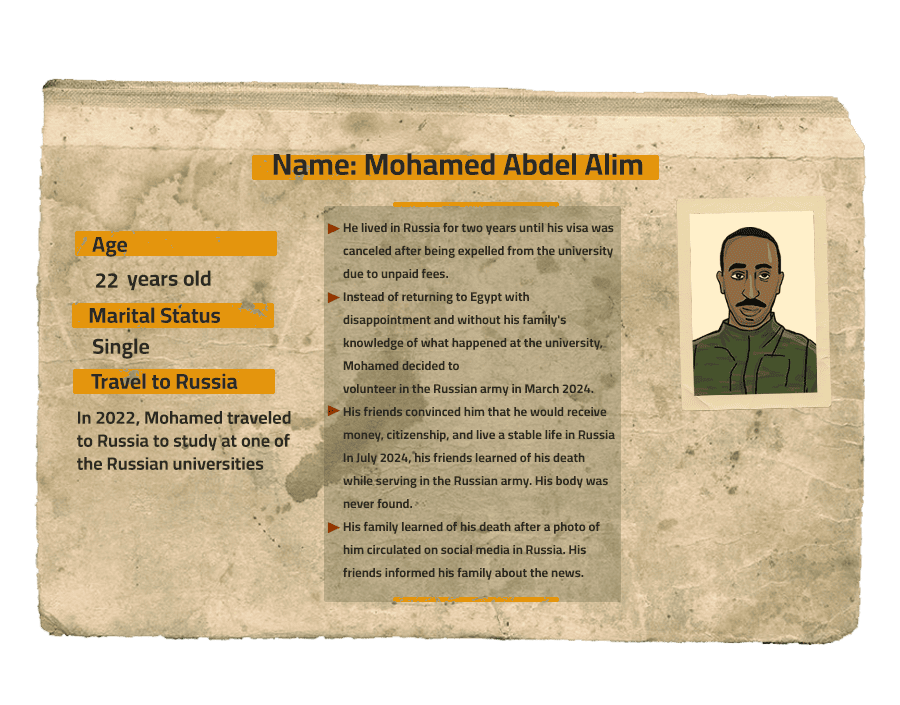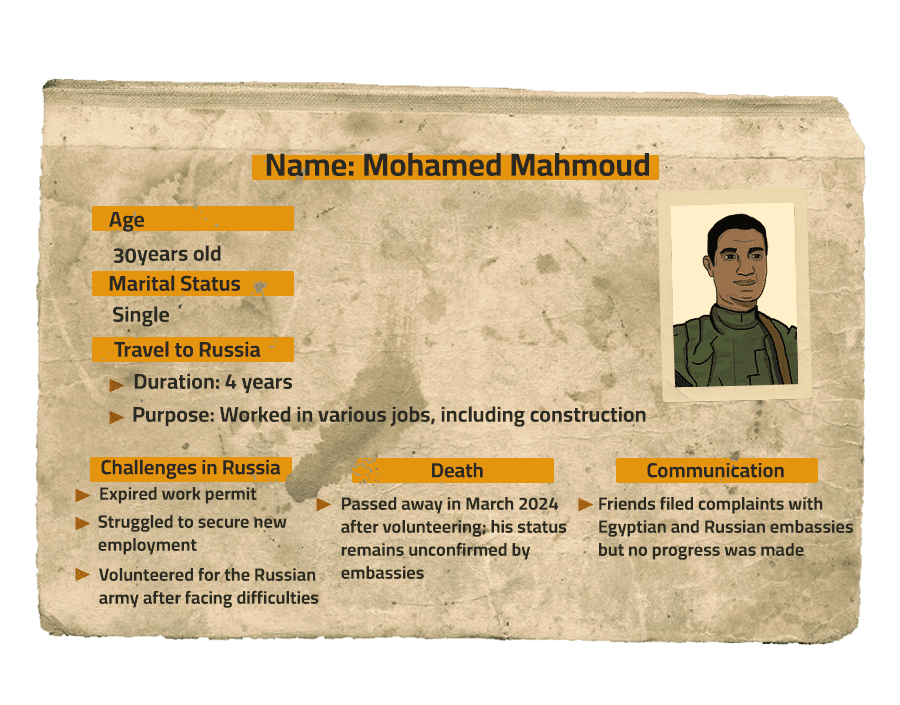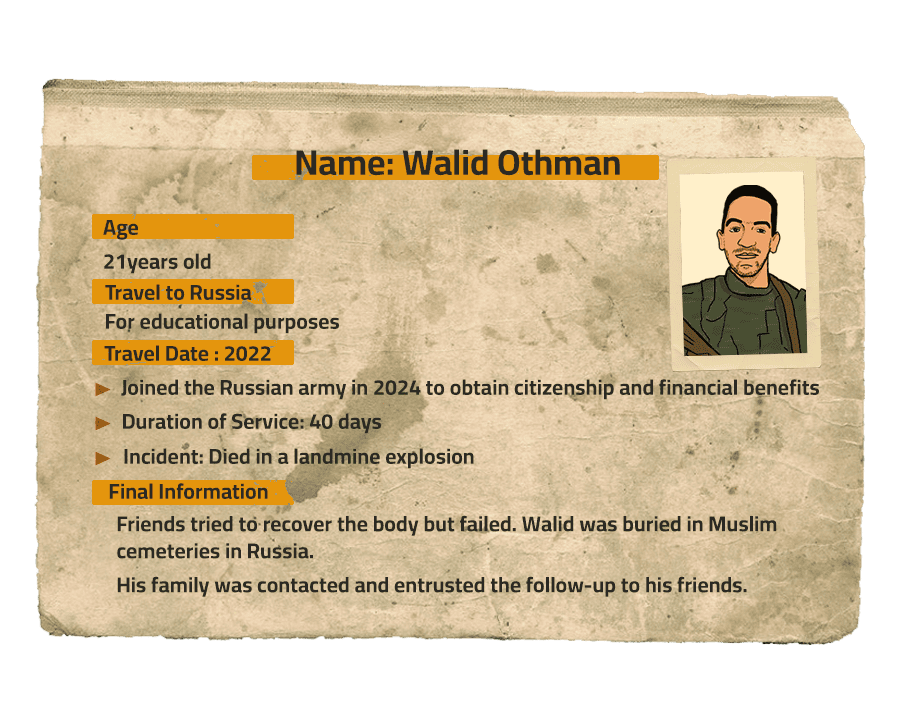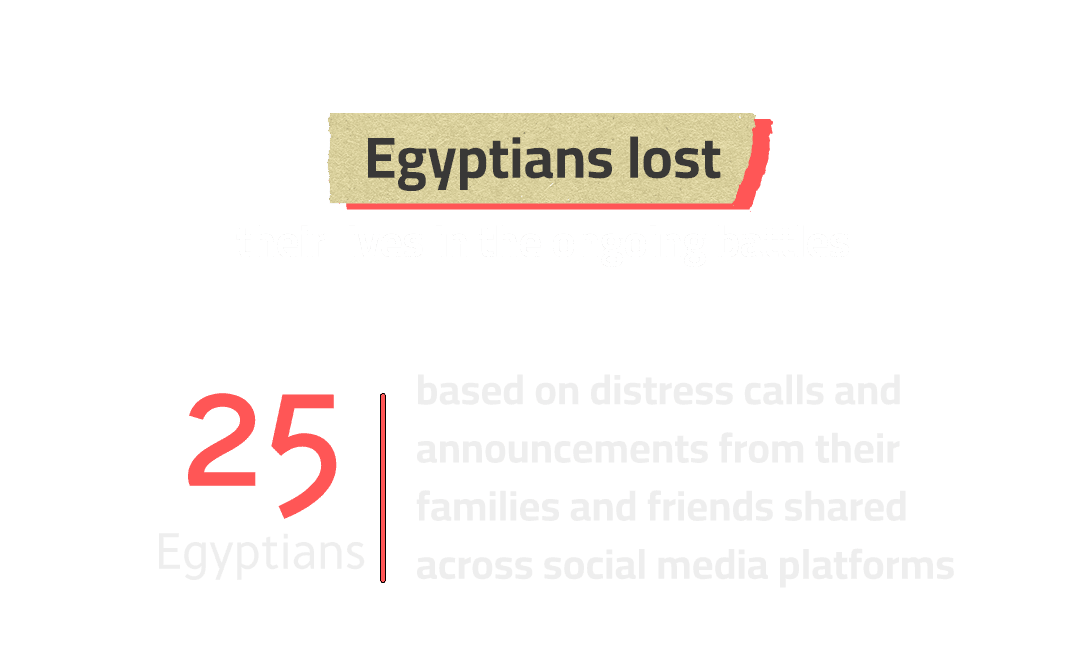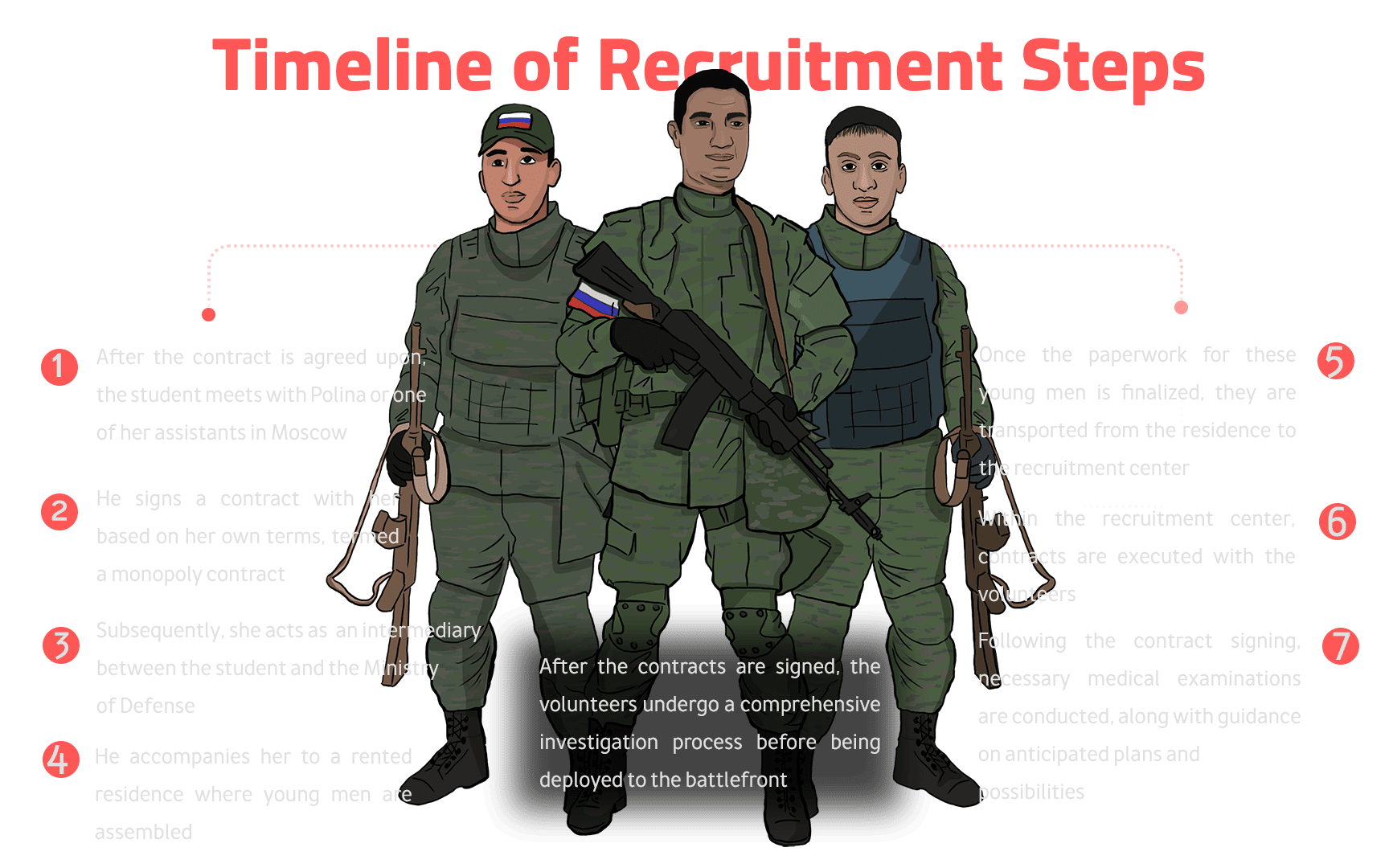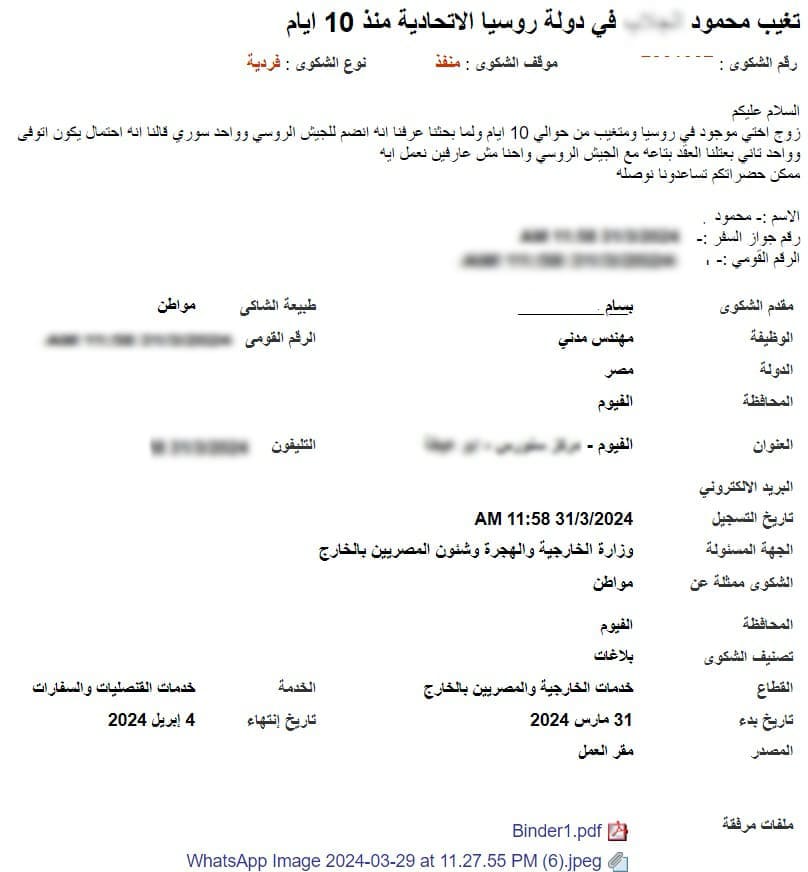Nour, a young Egyptian who traveled to Russia to study, had no military background or experience with weapons. However, he received training on handling and using different weapons, participated in field training and engagement simulations, and received special training in the weapon he served with. After this, he was assigned to one of the battalions within the military operations area. Nour was granted leave after six months of service, which lasted for 15 days.
Due to Nour's limited knowledge of the Russian language, the training center provided a translator from Russian to Arabic and vice versa to facilitate communication and the implementation of orders, as many volunteers in his group were not fluent in Russian.
The training that foreign volunteers undergo to join the Russian army varies depending on the unit each soldier joins. According to Oleg Ignatov, a senior analyst for Russian affairs at the International Crisis Group, these foreigners are not a decisive factor in military operations, but they are part of Russia's current recruitment efforts, which rely on volunteering rather than compulsory mobilization.
However, the training provided to foreign volunteers was found to be insufficient to qualify them to fight battles in the operational areas, according to one field commander. In a video clip circulating on Telegram channels of Russian soldiers' families, the commander described this type of soldier as "stupid and backward," attributing their slow learning and response to factors such as language difficulties. The video was circulated on Egyptian groups in Russia and some social media sites, and no Russian party has issued any denial or comment on its content.
Communication is particularly challenging for foreign volunteers who have never lived, worked, or studied in Russia, as explained by Nour. Some of his batchmates had been in Russia for only a few days. These volunteers typically arrive in Moscow on tourist, work, or study visas and complete their army enlistment procedures through intermediaries and brokers, as explained by Russian Polina Alexandrovna through the Telegram channel. She has assistants of Arab nationalities in Egyptian and Arab groups in Russia who help Egyptians and Arabs volunteer in the army.
The last two Egyptian volunteers from outside Russia arrived in Moscow on Friday, September 13,
as announced by the Russian woman on the Telegram group, confirming that they would sign a contract with the Russian Ministry of Defense.
 Russia's friend... a virtual mediator to mobilize Egyptian and Arab mercenaries
Russia's friend... a virtual mediator to mobilize Egyptian and Arab mercenaries
"Friend of Russia" is the Telegram channel established by the Russian national Polina Alexandrovna. The channel features a profile picture of Russian President Putin and is described as "a channel to support the Russian Federation Army in the military operations zone." In its description, the provided link allows subscribers to invite others interested in traveling to Russia to volunteer for military service. Our access to the group was facilitated by one of its members, who intended to enlist and travel to Russia to join the Russian army to acquire Russian citizenship. However, he retracted his decision upon learning that many of his predecessors who volunteered had been killed, a fact relayed through the same intermediary.
Polina Alexandrovna restricts access to the channel's content, making use of the privacy, encryption, and security features offered by the Russian Telegram application. Subscribers are unable to download photos or videos, copy published content, or take screenshots without employing external methods.
The subscriber count for the "Friend of Russia" channel fluctuates, monitored over a 30-day period, with a peak of 1,144 subscribers from Arab and African nationalities. The channel's content includes motivational messages aimed at potential volunteers, showcases the advantages and experiences of volunteers in combat zones, and provides updates about new enlistees, particularly listing dozens of Egyptian nationals approved to serve in the Russian army.
In addition to her Telegram channel, Polina Alexandrovna maintains two unverified personal accounts on the social networking platform Facebook, one of which predominantly features private content. The other account is utilized for engagement with various Arab and Egyptian groups based in Russia.
According to information available on one of her Facebook accounts, Alexandrovna resides in Voronezh, located in southwestern Russia. Her connections with Arab and Egyptian individuals extend beyond mere facilitation of military enlistment; she previously engaged in assisting Egyptian, Arab, and African students in securing travel arrangements to study in Russia through her own company, as corroborated by testimonies from several Egyptians in Russia, including individuals such as Mohamed Hassan, Mahmoud Saeed, and Abdel Rahman Sayed, who traveled to study through her services years ago.
Furthermore, her relationship with Arabs and other foreigners in Russia encompasses a personal dimension, having married an Iraqi man ten years ago who came to Russia for studies, resulting in the birth of her only child before their separation years later, which ultimately led to her ex-husband's deportation to Iraq.

Data from the Unified Register of Legal Entities (USRLE), a governmental information resource for financial reporting, indicates that Polina Alexandrovna, a woman of modest origins, previously operated small businesses in the education and tourism sectors. She served as the general manager of OOO RASHEN TURS, a travel agency that commenced operations on March 15, 2023. However, the company was dissolved less than a year later, specifically on April 5, 2024, due to its classification as an unreliable entity.
Prior to OOO RASHEN TURS, Polina founded LLC INTEREDU on March 26, 2021, which focused on providing educational services such as organizing training courses and offering educational consulting, as well as facilitating travel visas for students intending to study in Russia. This company specifically targeted Arab students, particularly those from Egypt.
LLC INTEREDU was also liquidated on November 18, 2022, just over a year and a half after its inception.
Both OOO RASHEN TURS and LLC INTEREDU were dissolved shortly after their establishment and subsequently removed from the state register of legal entities due to the submission of inaccurate information. Such actions are typically initiated when authorities determine that a company has presented incorrect or misleading data, suggesting potential concerns regarding the legitimacy of its operations.
Despite these setbacks, Polina has emerged as a prominent intermediary between young Arabs and the Ministry of Defense, with her activities extending beyond mere facilitation. She organizes contracts for clients at a fee of 300,000 rubles (approximately $4,000), primarily targeting individuals from abroad, and reserves the right to utilize their images in military uniforms for promotional purposes, as exemplified in her dealings with Saeed.
The 39-year-old entrepreneur operates her business discreetly, often communicating with potential clients through electronic contracts that promise transformative journeys, substantial financial rewards, permanent residency, and Russian citizenship. Beneath this façade lies a network designed to recruit Arabs and foreigners to participate on the front lines of the ongoing conflict in Ukraine that has persisted since February 2022.
 Returning to the battalion is a more viable option than awaiting fate:
Returning to the battalion is a more viable option than awaiting fate:
Despite suffering injuries from shrapnel caused by artillery fire targeting the trench where his reconnaissance team sought refuge from Ukrainian drone attacks, Saeed Ramadan, a young Egyptian man, waited for two days without assistance or any information regarding the fate of his team members. He attempted to persuade his Syrian colleague of the necessity to mobilize and rely on their own initiative to return to the battalion instead of succumbing to despair. However, his colleague resisted this notion, fearing the risks posed by drone strikes. Consequently, Saeed resolved to venture out in search of signals or indications that could guide him back to his battalion, while his colleague chose to remain, adhering to the emergency protocol outlined by their battalion leaders.
On August 4, 2024, the Ukrainian Combat Operations Center in the besieged Kharkiv Oblast reported an increase in the presence of foreigners at the front lines engaged in military operations. The report highlighted the involvement of Egyptians in hostile activities. Over the past two years, Ukrainian authorities have noted a rising number of foreign nationals serving within Russian forces on Ukrainian territory, as elucidated by Ukrainian MP Inna Sovson. She indicated that monitoring reports identified the presence of Egyptians among what she termed "occupying forces."
According to Rami Abu Shamsya, a member of the Ukrainian Patriot Party, the recruitment of Egyptian students, who initially sought educational opportunities in Russia, into warfare is a violation of international norms and laws. He characterized these individuals as "mercenaries." Oleg Ignatov, a senior analyst for Russian affairs at the International Crisis Group, stressed that international law may not recognize these soldiers as prisoners of war or combatants, leaving them vulnerable to prosecution for "mercenary activities." The primary motivation for these foreign volunteers to enlist in the Russian army often revolves around financial gain and the prospect of acquiring citizenship through expedited processes. Upon signing the contract, both the foreign recruits and their family members become eligible for citizenship.





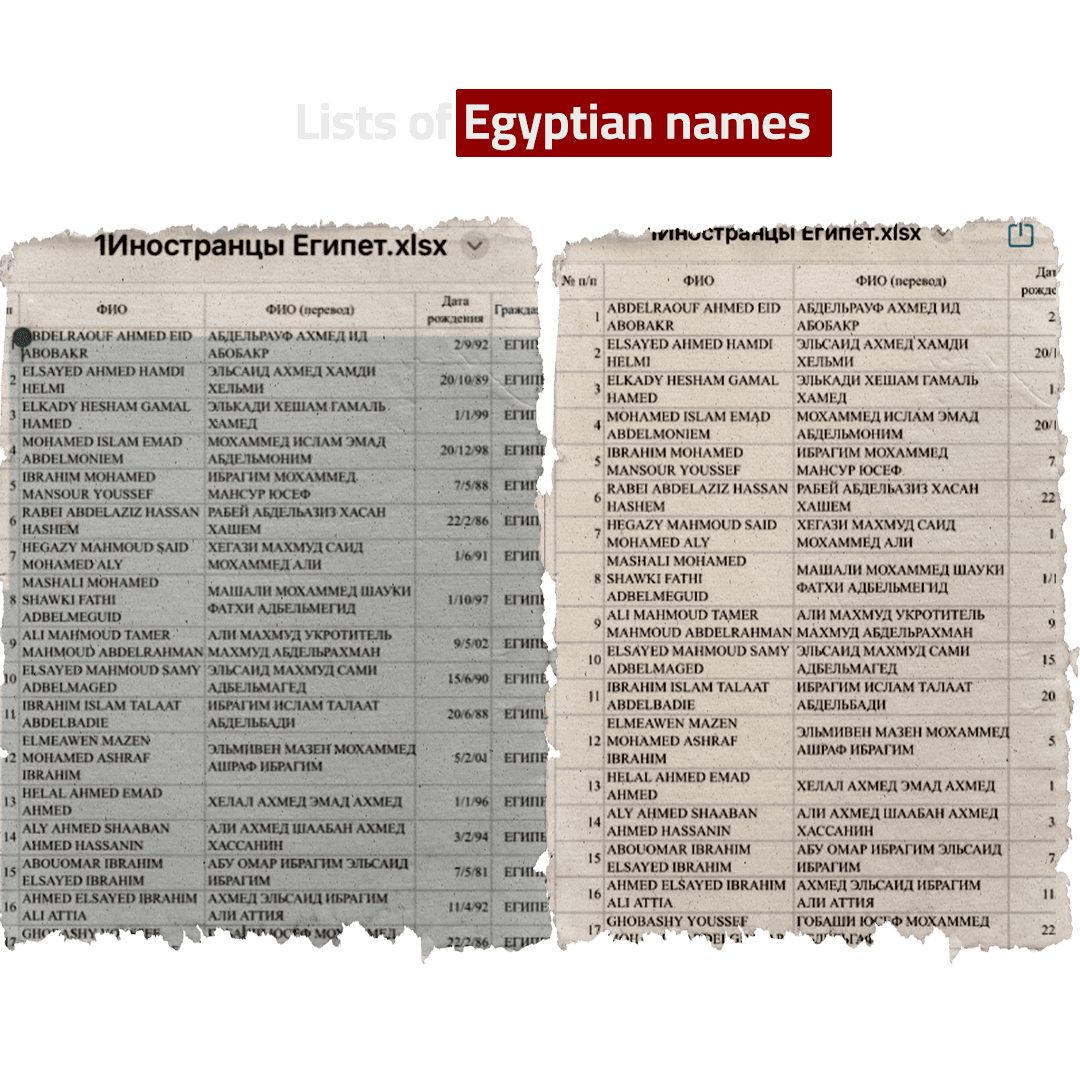
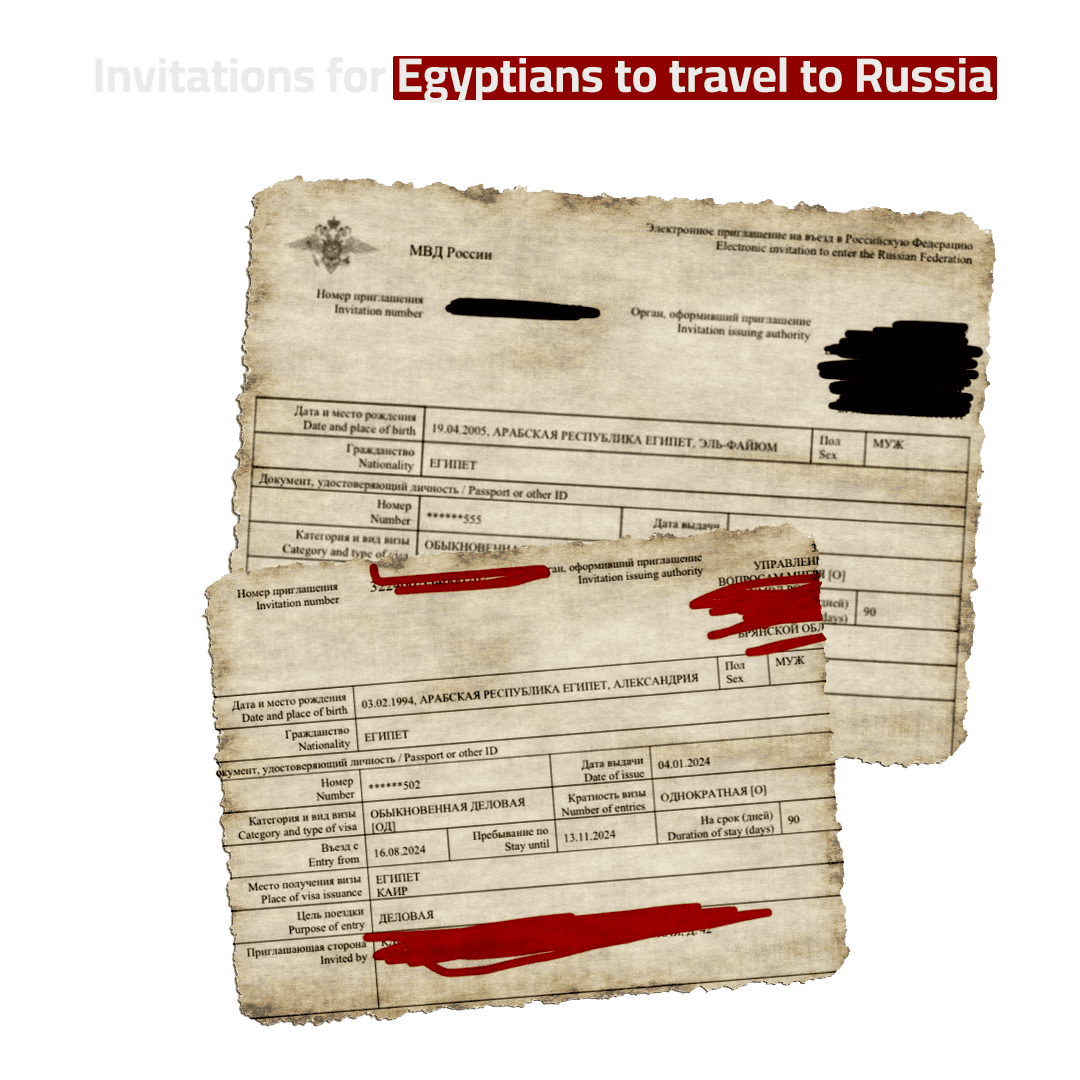


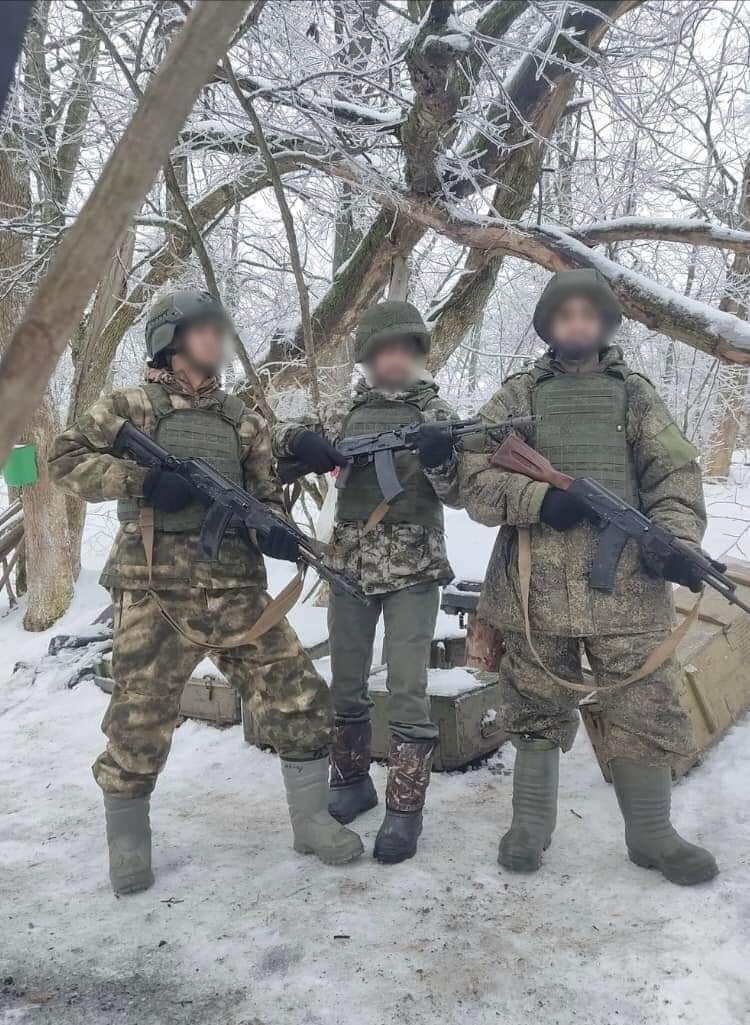

 Russia's friend... a virtual mediator to mobilize Egyptian and Arab mercenaries
Russia's friend... a virtual mediator to mobilize Egyptian and Arab mercenaries
